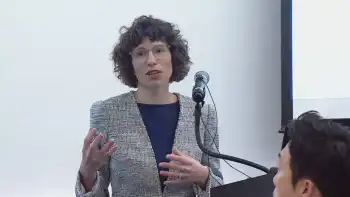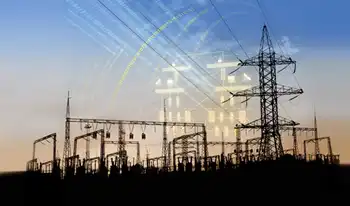Poll: Calif. Power Crisis Recriminations
LOS ANGELES - -- California residents harbor overwhelming displeasure over the way energy companies and political leaders have been dealing with the ongoing electricity crisis in the state, according to a Los Angeles Times poll has released.
Gov. Gray Davis' low marks for his handling of the situation were still higher than those accorded to President Bush, who has consistently appeared reluctant to take steps to rein in an electricity market that a vast majority of respondents believe has been manipulated by his political supporters in the energy industry.
"This electricity mess is out of hand, and all I see are people passing the blame around," said Dorothy Head of Baldwin Hills, one of the 1,514 Californians polled by the Times earlier this week. "It seems like things are just standing still."
Davis has been adamant in his contention that the private generating companies that have been enjoying a bull market for more than a year have regularly withheld power from the grid in order to drive up the wholesale price. Those spikes have cost the state billions of dollars and knocked the state's major utilities back on their heels.
The industry has denied the accusations and said it has been running plants at full speed to keep the lights on.
Californians apparently agree with Davis. The poll found that 74 percent of respondents "strongly agreed" with the contention that companies have manipulated the market while 12 percent agreed, but not strongly. Only 7 percent disagreed with the statement while 7 percent didn't know one way or the other.
Agreeing with Davis, however, is not the same as approving of his efforts to change the situation. Nearly half of those polled gave the governor, who is up for re-election next year, low marks for his handling of the situation.
Davis has fought hard to avoid the economically simple, but politically suicidal, step of allowing steep price increases to be passed on to the state's consumers. He has instead made the state Department of Water Resources the major buyer of electricity and has struck long-term supply deals with the generating companies at lower prices.
The terms of those contracts have been confidential, although a San Diego County judge has sided with news organizations and Wednesday ordered the details of the contracts to be released.
Davis has also been unable to persuade the Bush administration to place caps on the price of wholesale power sold on the Western spot market, and the president's seeming willingness to allow the state to twist in the wind was not lost on the Californians polled by the Times.
"Californians are even less enamored with Washington's performance," the Times said. "When asked which politician is more ably responding to the energy mess, Davis wins hands down over President Bush, enjoying almost four times as much support."
No one was asked his or her opinion of the weather in California, although they likely would have given recent conditions a thumbs up. Moderate temperatures and ample supplies of power Thursday allowed the state grid to hum along normally with no power alerts or warnings in effect.
The situation was different on the East Coast, however, as a muggy late June heat wave pushed up the need for air conditioning.
Philadelphia-area utilities said they expected high demand for power Thursday while PJM, the regional power pool that serves 11 East Coast utilities, said that supplies should be adequate, however it urged conservation for the next several days.
Related News

Hydro-Québec puts global ambitions on hold as crisis weighs on demand
MONTREAL - COVID-19 is forcing Hydro-Québec to pull the plug on its global ambitions — for now.
Quebec’s state-owned power generator and distributor has put international mergers and acquisitions on hold for the foreseeable future because of the COVID-19 crisis, chief financial officer Jean-Hugues Lafleur said Friday.
Former chief executive officer Éric Martel, who left last month, had made foreign expansion a key tenet of his growth strategy.
“We’re in revision mode” as pertains to acquisitions, Lafleur told reporters on a conference call. “I don’t see how Hydro-Québec could take $5 billion now and invest it in Chile because we have an investment…




